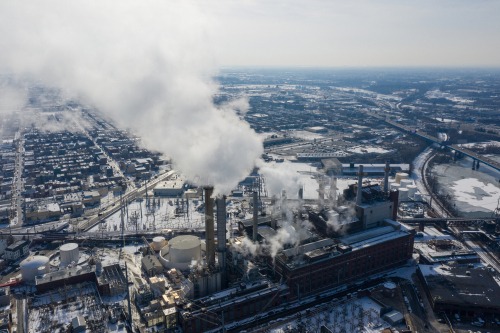
The Independent Regulatory Review Commission (IRRC) has called for a one-year moratorium on the implementation of Gov. Tom Wolf’s mandate that Pennsylvania join the Regional Greenhouse Gas Initiative (RGGI).
The commission also called into question Wolf’s unilateral decision to join RGGI without legislative approval. Specifically, the commission urges answers as to why a proposed regulation that represents a policy decision of such a “substantial nature” would not be subject to the appropriate legislative review.
“These critical IRRC comments, and its recommendation for a one-year delay, are quite timely given the ongoing and catastrophic blackouts in Texas, which were caused by that state’s transition from reliable and resilient coal generation to unreliable wind and solar power, much as Governor Wolf intends with Pennsylvania’s entry into RGGI,” said state Sen. Gene Yaw (R-23), chair of the Senate Environmental Resources and Energy Committee.
Wolf directed the Pennsylvania Department of Environmental Protection (DEP) to join RGGI on Oct. 3, 2019. RGGI, a collaboration of Northeast and Mid-Atlantic states, instructs participants to set a cap on total CO2 emissions from electric power generators in their respective states. In order to comply, power plants must purchase a credit or “allowance” for each ton of CO2 they emit, which change every calendar quarter through RGGI, Inc. auctions.
Pennsylvania would be the only state in the compact with a substantial amount of coal or natural gas resources. As a result, it would be the only state in the compact with electric generation plants fueled by those resources.
Following IRRC’s release, Power PA Jobs tweeted that this is a “great opportunity” for the governor to direct the DEP to withdraw the “unconstitutional” RGGI regulation, stating that, “The risks – job losses, rate increase – are very real. Rewards are few & speculative.” Power PA added that 86 percent of Pennsylvania emissions reductions are already offset by increases in Ohio and West Virginia.
“During Pennsylvania’s last polar vortex, it was coal generation that absorbed three-quarters of the historic increase in demand for electricity, since nuclear power cannot be increased and significant amounts of natural gas had to be rerouted from power plants to home heating,” Yaw continued. “These issues must be thoroughly analyzed by the General Assembly, the Public Utility Commission and PJM.”
The IRRC also questioned the Environmental Quality Board’s (EQB) authority to impose such a regulation limiting CO2 emissions from electric generation plants. The EQB considered and approved the regulation at a Sept. 15, 2020, meeting over previously filed objections and declined support from three DEP advisory panels – the Air Quality Technical Advisory Committee, the Citizens Advisory Council, and the Small Business Compliance Advisory Committee.
“The issues raised by members of the General Assembly, the legislative action from the last session of the General Assembly, the lack of consensus from three EQB advisory panels and the manner in which other states have joined RGGI clearly indicate that this regulation falls within the scope of that criterion,” the comments stated. “We ask the EQB to explain why it is appropriate to implement this carbon trading program through executive order and the rulemaking process instead of the legislative process.”